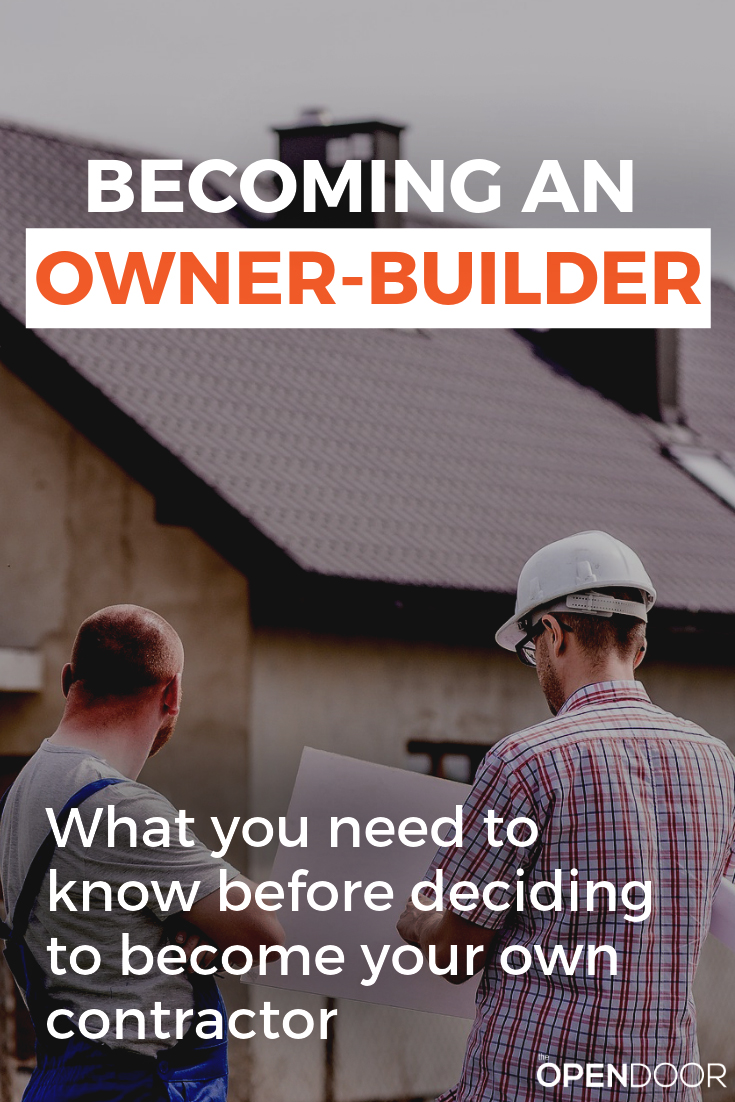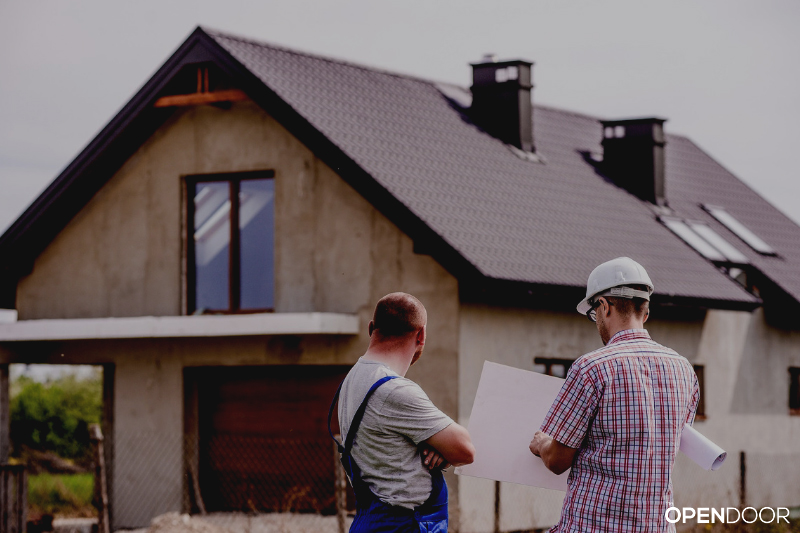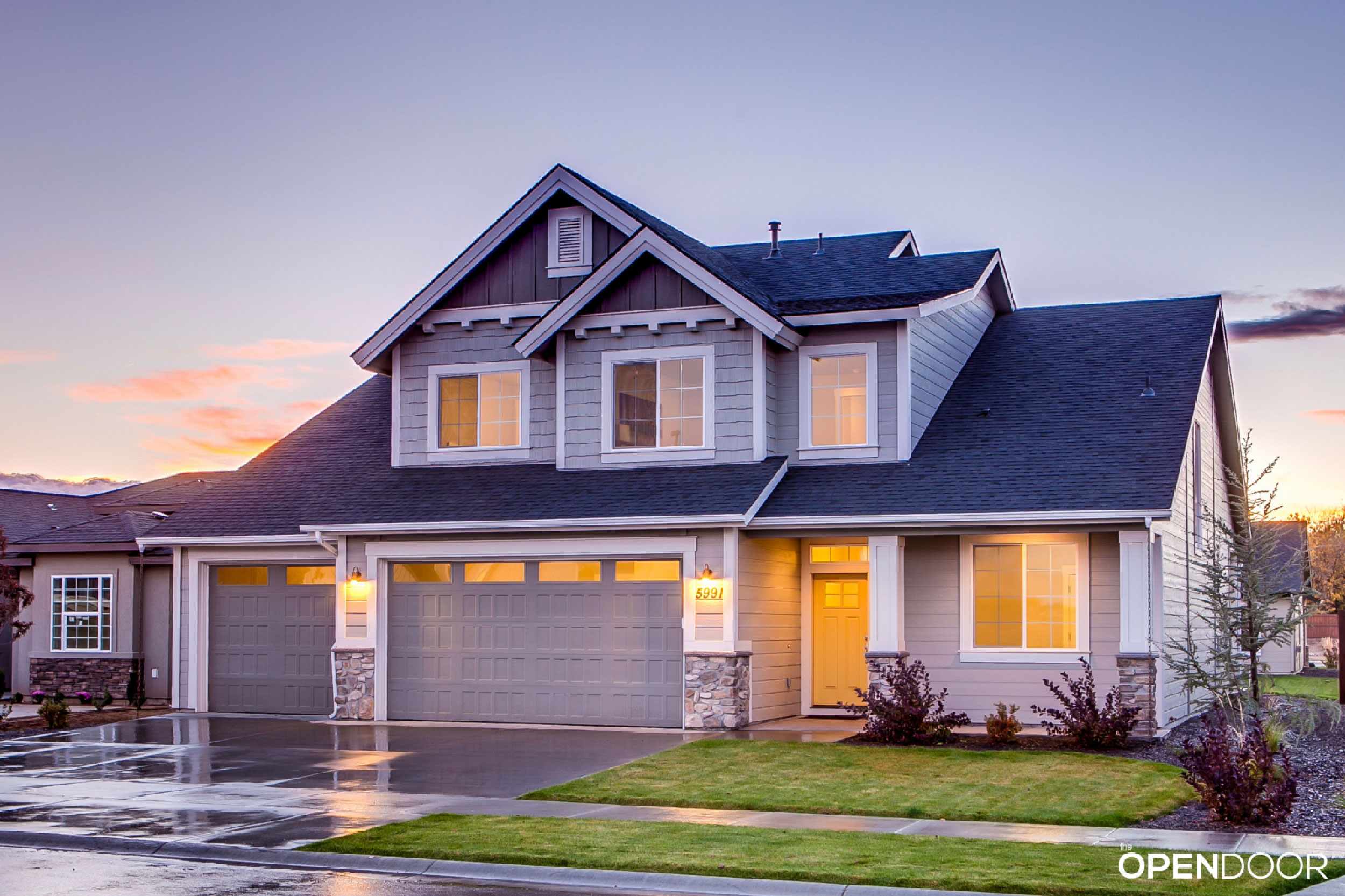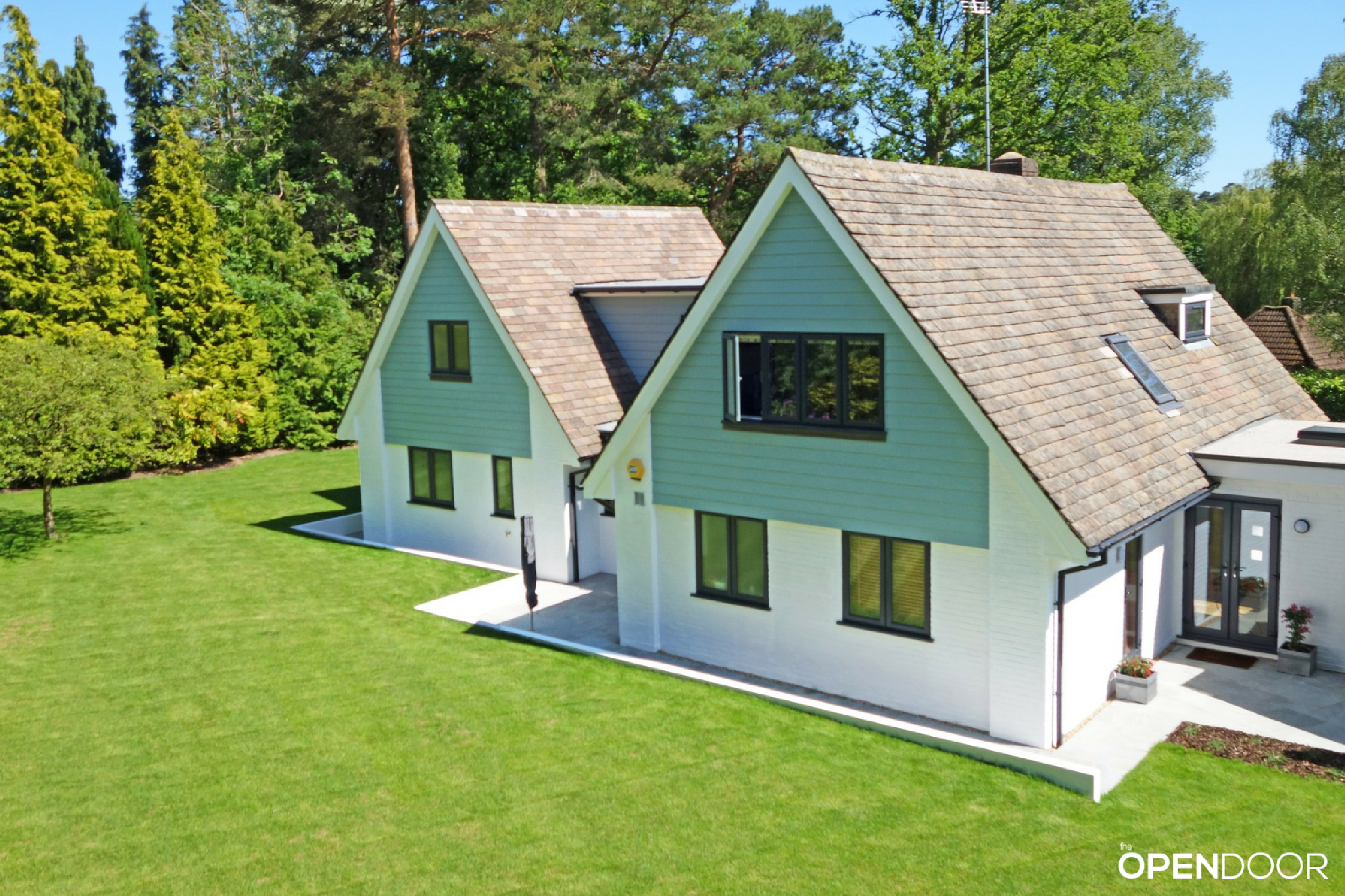Are you considering being an owner-builder or general contractor for your own project?
Numerous books and websites are happy to share how easy it is to save thousands of dollars by being an owner-builder. Many of these resources talk up the savings but minimize the time commitment, challenges, and risks. Before going jumping the gun, take a hard look at what is required to succeed as an owner-builder in this article, then decide if it’s the best way to move forward or if you should hire a licensed general contractor.
In this post, we’re going to talk about what it takes to be an owner-builder. Specifically:
- The most important skills required of owner-builders
- The pros (and cons) of being your own contractor
- Recommendations for starting out as an owner-builder
What is an Owner-Builder?
An owner-builder is a person who acts as the general contractor on his or her own project. They assume full risk on their project, but also reap all the rewards.
By acting as a general contractor on their own job they have a lot of roles and responsibilities. These include hiring subcontractors, ordering materials and supplies, pulling permits, scheduling each part of the process and handling payments and bookkeeping.
To elaborate on the role of a general contractor: General contractors don’t necessarily swing hammers (they can if they want to). Instead, they coordinate the work of all the subcontractors, vendors, and other personnel who perform the work. They are essentially managing the entire process from start to finish.
In addition, experienced contractors bring a wealth of knowledge to a project that can make the building process go smoothly and efficiently resulting in lower costs and (hopefully) higher quality work because they know what materials and building details will stand the test of time, and which are prone to failure.
General contractors can also save you money by negotiating effectively with subs and suppliers, and managing the work efficiently to avoid extra costs. Equally important, they know what subs to hire and have a working relationship with them. So as you can see, general contractors perform a lot of duties; all of which, you will take on if you choose to become an owner-builder.
Skills Required of Owner-Builders
It is possible to be your own contractor, even without experience, but it can be risky. Deciding to be an owner-builder should not be a decision to take lightly.
Because house construction is a complicated process, it requires a variety of skills. Before making the decision to be an owner-builder, take stock of your personal attributes and determine if you think you have what it takes to get the job done—in good times and bad!
The following are some questions to think about:
- Do you understand construction principles?
- Are you detail oriented, good at planning, and equipped to track the financial information associated with a building project?
- Do have the time to devote to this project?
- How well can you manage people and schedules?
These questions are meant to stimulate your thinking and help you honestly evaluate your abilities, but they are not the only questions to consider. Take some time to visualize the step-by-step procedures needed to build a house and how you fit into that process.
The following skills rank among the most important to have as an owner-builder:
Knowledge
There’s more to familiarizing yourself with the building process than learning the construction lingo. The more you know (and the better you plan), the fewer the headaches and extra costs. While knowledge of the technical side of building construction is not absolutely essential to being your own contractor, it will definitely help save you time, money, and sanity.
Your success will be dependent on acquiring the knowledge and skills you need to complete the job or hiring someone with those skills to fill the gap. Because you’ll most likely lack extensive experience in construction, you should expect some things to not go smoothly and anticipate unexpected expenses (all the more reason to have a contingency budget!). Nearly every job is a learning experience – and you’ll learn a ton on this first job that you could put to good use later if you’re committed enough to want to do this again.
Planning
Remember that while some of a contractor’s work is done on the job site, most of the work is in the office planning ahead of time so that things will go well on the job site. This includes reviewing drawings for potential problems and conflicts and to find the best way to get the job done. It also includes estimating the costs of materials and labor, securing quotes, ordering materials, obtaining permits and approvals, hiring, scheduling the work, deliveries, and inspections, and managing subcontractors, and tracking accounts payable and receivable to keep the whole project afloat.
There’s A LOT to plan for. The better the planning, the fewer the problems and surprises.
Related article: 5 Things You’re Wasting By Not Planning Enough
Commitment
Gaining knowledge and planning well are not enough. You must also have a strong desire to see the project through to completion. There will undoubtedly be times when you’ll wonder why you ever thought you could do this! It’s not an easy task and things won’t always go as planned. Be sure that you have the persistence and mindset to see the job through.
Time
Managing the construction process to build a home is a substantial time commitment. It’s practically a full-time job. Expect to have early phone calls with subs and delivery people. And plan to be at the job site at different times during the day to receive or secure materials, answer questions, and inspect the quality of the work. Do you have time for all of this work? Will you be taking time off from your 9-5 job to do this project or will you be a weekend warrior?
Financial Resources
It probably goes without saying that you’ll need to have financial resources to build a home. But keep in mind that if you go the owner-builder route, there is a chance that your lender may have a problem with there not being a professional contractor working on the project. Speak to your lender as soon as possible to learn if this is the case and what you can do to ease their concerns. Does it mean you need to hire a construction manager or foreman?
In addition to these skills, a willingness to ask questions, having a knack for problem-solving, and having good organizational and business skills are also a plus.
Why an Owner-Builder? (the Pros)
The three most common reasons people become owner-builders are to save money, retain control, and gain personal satisfaction.
Saving money
Most people decide to become an owner-builder because of the money savings. If you know what you’re doing and you’re careful, you can potentially save up to 15% to 20% of construction costs (if all goes right). If your construction cost is $300,000, that could result in a savings of about $50,000!
Keep in mind that for those savings you’re committing a lot of time and taking on a lot of risk. If you don’t have much construction experience or free time, you’ll need to hire a foreman or construction manager to oversee the work, reducing your savings. On the other hand, if you are handy with a hammer and plan to both oversee the job and do some of the work yourself, your savings will naturally be higher.
As an aside: About half of that money goes towards overhead (your time managing the process, bookkeeping, insurance, office expenses, tools, and job site amenities). The rest is profit. Don’t think that all of that savings is pure profit. You’ll have some expenses to pay for.
Retaining control
As an owner-builder, you’ll have more risk but you’ll also have more control to see to it that you get exactly what you want. You’ll be in charge of everything and will be making all the decisions. This goes for choosing your subs and vendors, selecting materials, deciding when to make payments and securing quotes, and scheduling all the construction activities.
Feeling satisfied
Few things in your career will feel as good as saying you built your own home. When you’re an owner-builder building exactly what you want, there’s a strong sense of pride and accomplishment that comes along with it. It shows in everything you do and everyone you talk. This reason alone is why many go-getters choose to be their own contractor. It’s the thrill and excitement of taking the bull by the horns and creating something special.
Cons of Being Your Own Contractor
Being an owner-builder is not right for everyone. Few people attempt this type of project delivery method, mostly because of their lack of experience. But there are other reasons too.
Here are the most common downsides to being your own contractor:
- Real savings are usually less than expected due to unanticipated expenses, overruns, and cost blowouts
- Construction takes longer than expected
- Quality may suffer or you may encounter more problems you don’t know how to solve
- There’s more risk: risk of cost overruns, schedule overruns, poor construction installation due to inexperience
- Added liability for worker injuries, property damage, and material damage
- Obtaining a construction loan may be difficult
- Time commitment is high
For some, these reasons still don’t outweigh people’s burning desire to build their own projects. Whether it’s saving money, retaining control, or the overwhelming sense of pride, many people feel that being an owner-builder is the best choice for them.
Should I Be an Owner-Builder?
If you’re highly organized, a quick learner, have good financial and business skills, and have interest in effectively planning and managing a building project, and have at least a general idea of how houses go together, this is a viable option. You must also be willing to put in the necessary time to plan and overseeing the job, or hire someone else to take on that role.
Does this sound like something you would like to do?
If so, keep reading for some good recommendations in starting out.
Recommendations for Starting Out as an Owner-Builder
Since this will most likely be the first substantial project that you’re building for yourself, here are some recommendations for starting out as an owner-builder:
- Plan. Plan. Plan. The most critical time is the planning stage: permitting, honing the plans and specs, selecting materials, budgeting, soliciting bids, lining up subs, negotiating with suppliers, scheduling the work. If you’ve done all that well, the building process itself should be pretty uneventful — which is of course what you want. And don’t forget to stay organized. You’ll have a lot of information to keep organized: schedules, contact lists, material lists, purchase orders, permit documents, photos, conversation notes, etc. Make sure you have a clear organization strategy.
- Get insurance. Laws vary from state to state but, in general, an owner-builder assumes the same liability as a general contractor. That means that you are potentially liable for any injuries, property damage, and damage to materials during the construction process. Also, most construction lenders will require you to get a builder’s risk policy.
And if you’re inexperienced or overly busy:
- Hire a construction manager to manage the subs or a site foreman. You’ll still be contracting with the subs directly, and handling as much of the contractor’s job as you want and can handle. The more you do yourself, the less you will have to pay the construction manager. Do an honest self-appraisal and hire the people you need to fill in your weak areas.
- Start small: If you have the opportunity, I’d strongly suggest running one or two smaller jobs, such as remodeling your current home, before building a new one. Even though the job will be much smaller and less complicated, run through all the same steps as you would with a new home to get a feel for the work involved and types of issues that will come up. Then, decide if being an owner-builder is right for you.
- Limit your scope: Hire a general contractor for most of the structural work— get an enclosed shell, and then take over as your own contractor on finish work, landscaping and other tasks that require less expertise. And do all the hands-on work that you can do: cleaning up the job site daily, painting, etc.

Acting as your own contractor requires a combination of skills and aptitudes, but the good news is that most people are capable of performing this role with some research and a lot of patience. Seeing your own home as it comes out of the ground as you manage the process is an unforgettable experience, with many benefits. The most rewarding of which is the intangible sense of accomplishment. Good luck, my fellow owner-builder!
For more information on being an owner-builder and other project delivery methods, take a look at our guide:
A Homeowner’s Guide to Project Delivery Methods.
(click to instantly download the guide)










